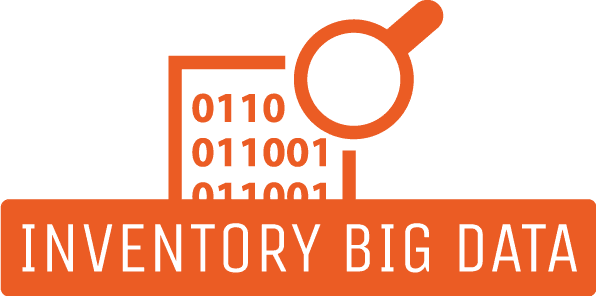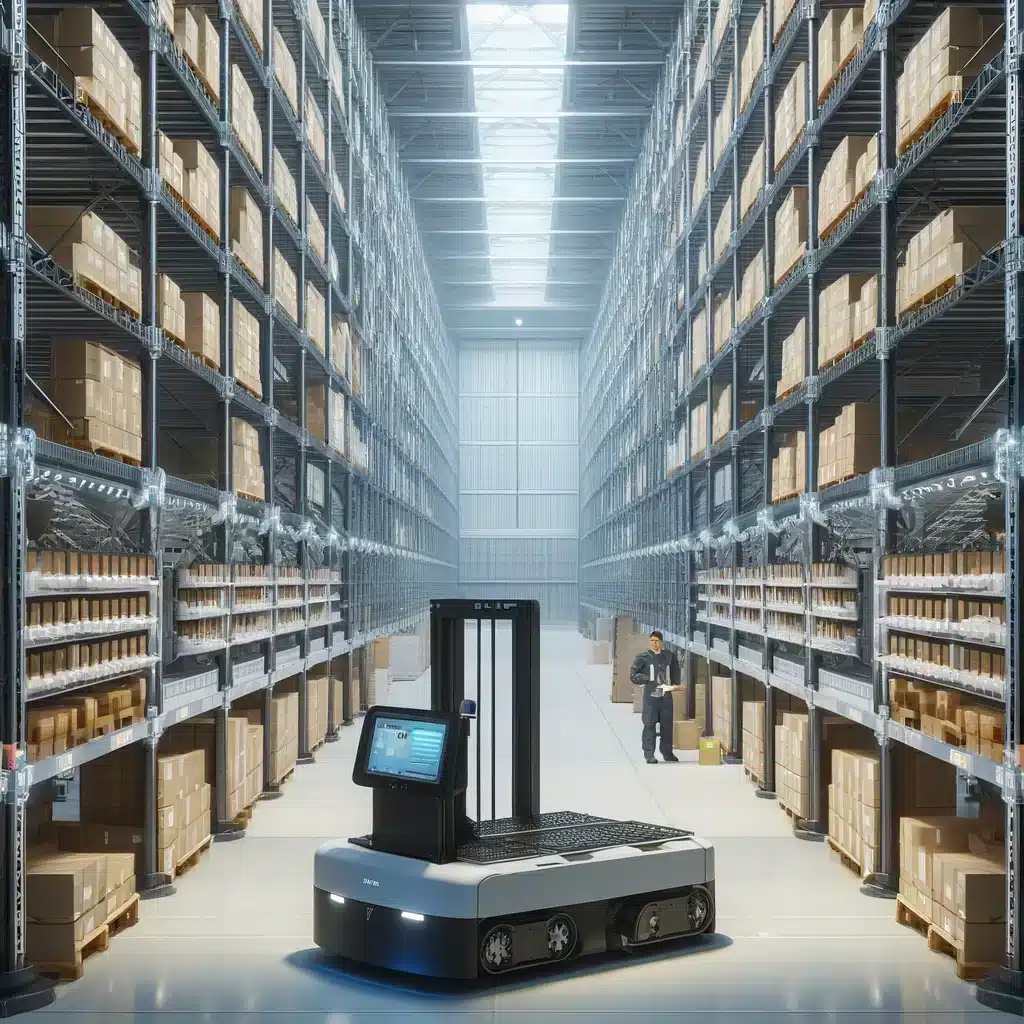Data of Store Manager
Description
As the Stores Manager, Nelson is responsible for the management and administration of daily storage and goods dispatch operations.
Data analysis for inventory management
Inventory Management: The Importance of Data Analysis
In the manufacturing industry, a storekeeper plays a crucial role in ensuring that operations run smoothly. They are responsible for managing and maintaining inventory levels, ensuring that the right products are available when needed. This requires a deep understanding of data analysis and the ability to use it to make informed decisions.
One of the key metrics that storekeepers use to manage inventory is the depth of delay (profondeur de retard). This is a measure of how long it takes for a product to be restocked after it has been sold. By analyzing this data, storekeepers can identify any issues that may be causing delays, such as a lack of raw materials or supplier disruptions.
The storekeeper’s job description in the manufacturing industry includes a wide range of responsibilities, including:
- Maintaining accurate records of inventory levels and movements
- Ensuring that inventory levels are sufficient to meet customer demand
- Monitoring the depth of delay to identify any issues and take corrective action
- Coordinating with suppliers to ensure timely delivery of goods
- Conducting regular physical inventory counts to reconcile stock levels
To be effective in their role, storekeepers must have a strong understanding of inventory management best practices, as well as excellent organizational and communication skills. They must also be able to work well under pressure and be able to handle multiple tasks simultaneously.
In addition to these core responsibilities, storekeepers may also be responsible for calculating the service rate (taux de service). This metric measures the percentage of customer demand that is met from inventory, and is an important indicator of the overall effectiveness of the inventory management system. By analyzing this data, storekeepers can identify areas for improvement and make changes to optimize inventory levels and improve customer satisfaction.
The role of the storekeeper is critical to the success of any manufacturing company, and as such, they must have the necessary skills and experience to carry out their duties effectively. If you are considering a career in inventory management, it is important to understand the key responsibilities and requirements of a storekeeper in the manufacturing industry.
In conclusion, data analysis is a critical component of effective inventory management. By using data such as the depth of delay and service rate, storekeepers can make informed decisions that help to optimize inventory levels, improve customer satisfaction, and drive business success.
SAP
SAP Screens
A Supply Chain Manager (SCM) would likely access a variety of SAP screens to manage and oversee different aspects of the supply chain. Some common screens that an SCM might utilize include:
- Material Master Data: This screen allows the SCM to view, maintain and update detailed information about specific materials, including stock levels, unit of measure, and storage location.
- Stock Overview: This screen provides an overview of the current stock levels for all materials in the store and allows the SCM to track inventory levels.
- Purchase Order: This screen enables the SCM to create, approve, and manage purchase orders for materials and goods needed.
- Sales Order: This screen allows the SCM to view, create, and manage sales orders for the company’s products.
- Production Order: This screen facilitates the SCM to create, monitor, and manage production orders for the company’s products.
- MRP (Material Requirement Planning): This screen enables the SCM to plan and manage the materials and resources needed for production.
- Capacity Planning: This screen helps the SCM to plan and manage the capacity of the company’s production resources.
- Demand Planning: This screen assists the SCM to forecast, plan, and manage the demand for the company’s products.
- Transportation Planning: This screen enables the SCM to plan and manage the transportation of materials and goods.
- SupplyNetworkCollaboration: This screen allows the SCM to collaborate with suppliers and partners to plan and manage the supply chain.
- Reports: This screen provides access to various reports such as inventory turnover, stock aging, and goods receipt/issue history, and enables the SCM to analyze data and make informed decisions.
Main SAP tables
- Material Master Data: This screen is typically linked to the MARA (Material Master: General Data) and MARC (Material Master: Plant Data) tables.
- Stock Overview: This screen is typically linked to the MARD (Material Stock) table, which stores current stock levels for all materials.
- Purchase Order: This screen is typically linked to the EKKO (Purchase Order Header) and EKPO (Purchase Order Item) tables, which store information about purchase orders, including PO number, material, quantity, and delivery date.
- Sales Order: This screen is typically linked to the VBAK (Sales Order Header) and VBAP (Sales Order Item) tables, which store information about sales orders, including order number, material, quantity, and delivery date.
- Production Order: This screen is typically linked to the AUFK (Order Header) and AFPO (Order Item) tables, which store information about production orders, including order number, material, quantity, and planned start date.
- MRP (Material Requirement Planning): This screen is typically linked to the MD04 (MRP – Stock/Requirements List) table, which stores information about the materials and resources needed for production.
- Capacity Planning: This screen is typically linked to the AFVC (Operations and Activities) table, which stores information about the capacity of production resources.
- Demand Planning: This screen is typically linked to the MD61 (Forecast) table, which stores information about the forecasted demand for the company’s products.
- Transportation Planning: This screen is typically linked to the VTTK (Transportation Planning Table) table, which stores information about the transportation of materials and goods.
- Supply Network Collaboration: This screen is typically linked to the tables that store information about suppliers and partners, such as LFA1 (Vendor Master: General Data) and LFB1 (Vendor Master: Company Code Data)
SAP Shortages identification
SAP Query for Identifying Actual Shortages of Parts
The following query can be used to identify actual shortages of parts within the SAP system:
SELECT MARD.MATNR, MARD.WERKS, MARD.LGORT, MARD.LABST, MARA.MATKL, MARA.MAKTX FROM MARD JOIN MARA ON MARD.MATNR = MARA.MATNR WHERE MARD.LABST < 0 AND MARD.WERKS = ‘XXXX’ AND MARD.LGORT = ‘XXXX’ ORDER BY MARD.LABST ASC
This query will retrieve the following information from the SAP tables:
- Material number (MATNR) from the MARD (Material Stock) table
- Plant (WERKS) and storage location (LGORT) from the MARD table
- Stock availability (LABST) from the MARD table
- Material category (MATKL) and material description (MAKTX) from the MARA (Material Master: General Data) table
The query will filter the results to show only parts with a stock availability (LABST) less than 0, for a specific plant and storage location (WERKS and LGORT), and will order the result by the stock availability in ascending order.
It’s important to note that this is an example and the specific tables and fields used will depend on the SAP system used by the company, you might also need to add more filters based on your company need.
ERP and Softwares
Software available
- Enterprise Resource Planning (ERP) system: This is a software that allows store managers to manage and track inventory levels, sales, and other operational activities in real-time.
- Point of Sale (POS) system: This is a software that allows store managers to process transactions, track sales, and manage customer information.
- Inventory Management system: This is a software that allows store managers to track inventory levels, reorder products, and manage stock levels.
- Electronic Data Interchange (EDI) system: This is a software that allows store managers to exchange business documents such as purchase orders and invoices with suppliers and other trading partners.
- Customer Relationship Management (CRM) system: This is a software that allows store managers to manage customer information and interactions, track customer history, and analyze customer data.
- Business Intelligence (BI) system: This is a software that allows store managers to access and analyze data from multiple sources, such as sales, inventory, and customer data, to make informed decisions about the store’s operations.
- Email and Calendar software: This is a software that allows store managers to communicate with their team and schedule internal and external meetings.
- Document management systems: This software allows store managers to manage and share documents, such as purchase orders, invoices and contracts, with their team and other departments.
The role of data for a Stores Manager
Data plays an important role for a Stores Manager in an industrial enterprise as it enables them to optimize stock management processes and make informed decisions to maximize the profitability of the company. Here are some of the key roles of data for a Stores Manager in an industrial enterprise:
- Informed decision making: Data can help a Stores Manager make informed decisions regarding stock management, stock levels, and supply chain management strategies.
- Stock level management: Data enables the Stores Manager to monitor current stock levels and adjust them based on production demand, avoiding excessive storage costs or stockouts.
- Tracking key performance indicators: Data allows for tracking key performance indicators such as stock turnover, order error rate, and on-time delivery rate to identify areas that require improvement. Trend analysis: Data can be used to analyze production demand trends and identify products or materials that impact stock levels and company profitability.
- Profitability optimization: Data can help the Stores Manager optimize company profitability by identifying cost reduction opportunities, increasing sales, and maximizing resource utilization.
In summary, data is essential for a Stores Manager in an industrial enterprise as it allows for maximizing company profitability and optimizing stock management processes.
ABC Log offers stock management solutions that enable Stores Managers to improve their service levels, operating values, and stock values by effectively piloting and managing their supplies. ABC Log’s offer promotes operational efficiency and provides stock management solutions that optimize company profitability by identifying cost reduction opportunities, increasing sales, and maximizing resource utilization.
Additional information
| Publication |
|---|






